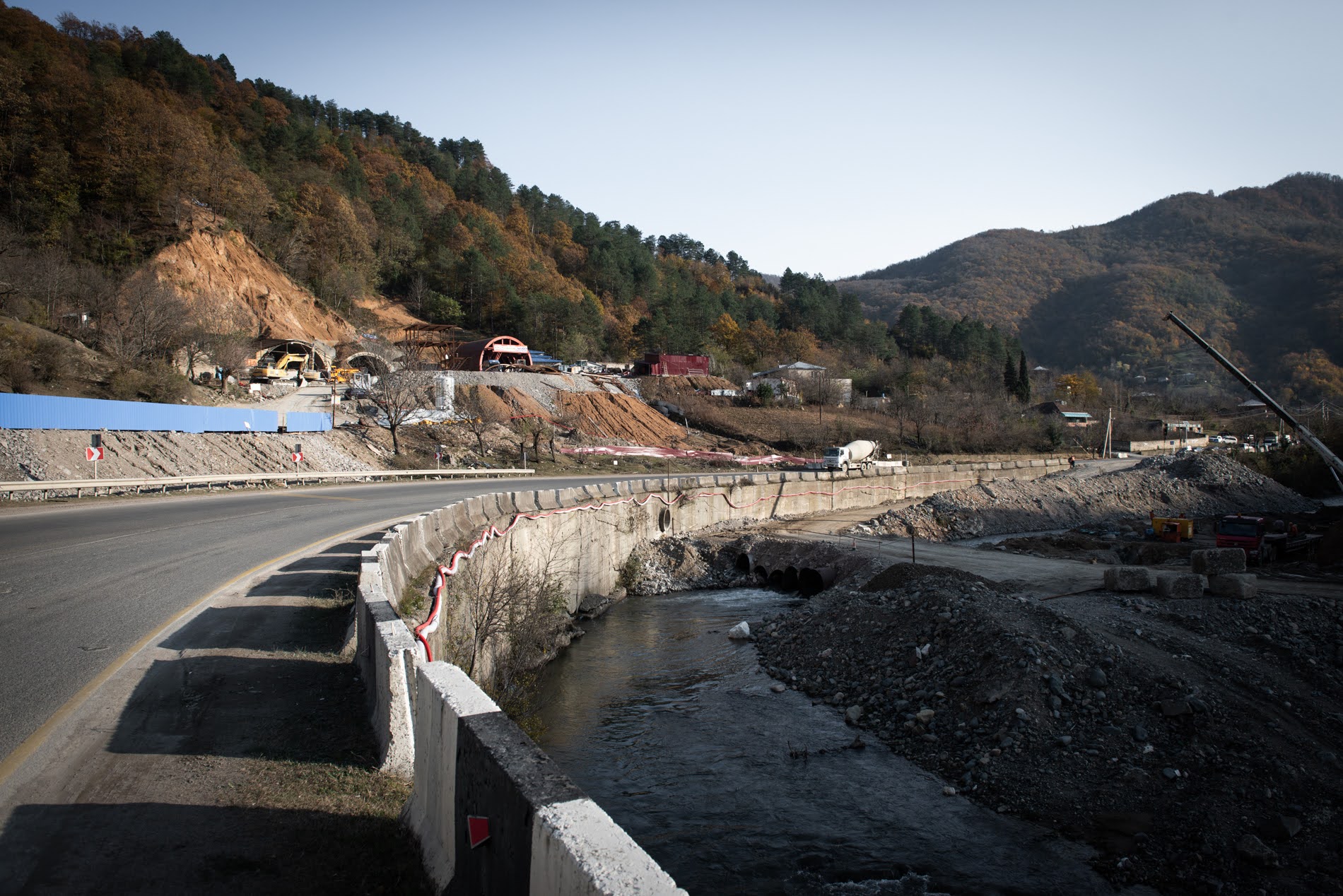
From sweetbread in Surami to hammocks in Khashuri, many settlements along Georgia’s E60 east-west highway are known for their unique crafts — now the modernisation of the E60 is threatening to turn them into ghost towns.
Georgia’s E60 highway, the country’s main east-west artery, is undergoing a radical transformation.

A new modernisation project is building new bypasses, overpasses, and tunnels. While this is surely welcomed by the drivers who will save precious on their drive through the country, the towns that now find themselves sitting astride little-used sideroads face economic devastation.
Indeed, as I discovered, combined with the economic ravages of the COVID-19 pandemic, many of Georgia’s roadside vendors fear themselves to be on the path to extinction.
‘Hammock street’
Once called ‘the centre of Georgia’, the town of Khashuri is a nodal point connecting Tbilisi with the lush wilds of Borjomi national park to the south-west and the Black Sea coast to the north-west.
Once serving as the junction between two of the country’s most popular vacation destinations, Khashuri is known for its manufacture and sale of holiday items, particularly hammocks and woven сhairs. But now, the town’s central street, once colourful with hundreds of hammocks of different shapes and sizes, is now almost bare.
I found only two vendors in all of Khashuri who were still working, and only one of them agreed to speak to us.
‘We are retired and we don’t even have a car’, 77-year old Mediko Arjevanidze, who sells the hammocks with her husband, told me. ‘We’re trying to sell the leftover things but this week, for instance, we haven’t sold a single item’.








